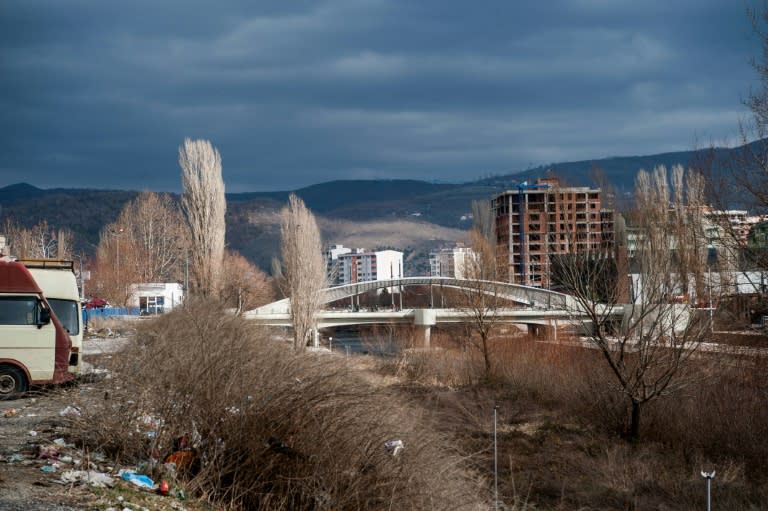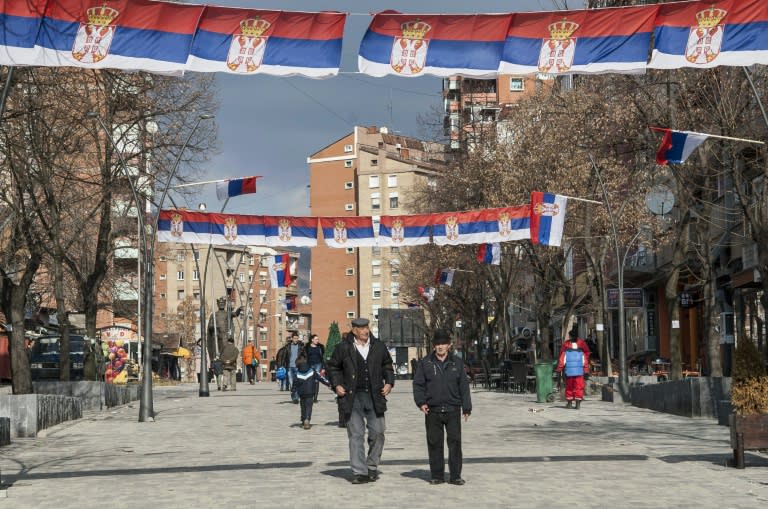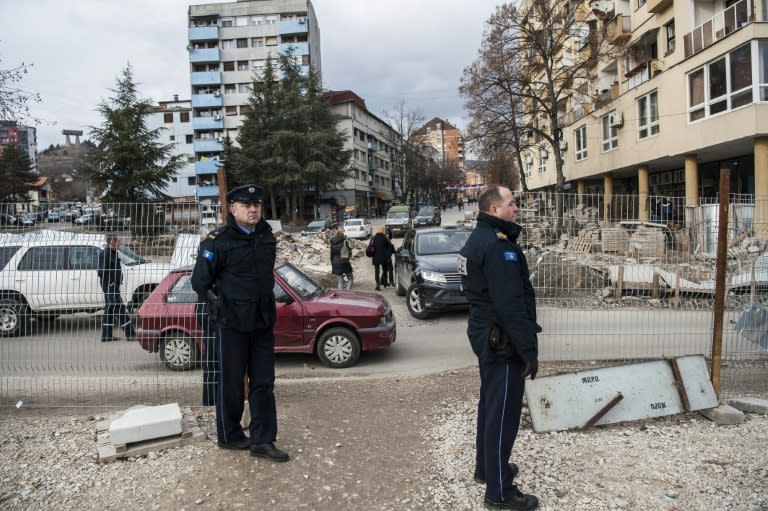Fear stalks Kosovo's divided Mitrovica city
Ten years after independence, Albanians and Serbs from Kosovo's divided city of Mitrovica have one thing in common -- fear, heightened by the recent assassination of a moderate Serb politician. The majority of the city's 70,000 ethnic Albanians live south of the Ibar river. The northern side is home to 12,000 Serbs who follow Belgrade's refusal to recognise Kosovo's independence, which will be celebrated on Saturday. Instead of integrating, the two communities prefer to look down on each other. "You will find young people who have never seen a Serb or an Albanian," said Besim Hoti, an ethnic Albanian deputy police chief. Those who speak the language of a different ethnic group are increasingly rare, Hoti added. Aferdita Sylaj-Shehu, of the NGO Community Building Mitrovica, uses English lessons as a "tool" to help young people from both sides of the divide to meet and try to understand each other. But Sylaj-Shehu herself is reluctant to cross the bridge connecting Mitrovica's north and south. Supervised by international forces, the bridge remains a symbol of division, and blocks of concrete are being placed on it. Pedestrians who dare take the bridge remain rare, although they are no longer pelted with stones. One one side, the red-blue-white flags of Serbia fly in front of a monumental statue of King Lazarus, a symbolic nationalist figure who points an imperious finger to the south. "Kosovo is Serbia," is written on a wall. The Albanian side is adorned with the flags of Europe's youngest state and near the great mosque stands a bronze statue of Shemsi Ahmeti, a Kosovo Liberation Army (KLA) guerrilla with a Kalashnikov assault rifle across his back. - Fear of unexpected - Mitrovica has been cut in two since the 1998-1999 war between Serbian forces and KLA independence rebels. The conflict killed more than 13,000 people, including 11,000 ethnic Albanians. Deadly riots such as those in 2004 and 2008 seem to be in the past. Yet, "when arriving here there is always the fear of something bad and unexpected," said Hamdi Pllana, 61, an ethnic Albanian pensioner. Crossing a footbridge spanning the Ibar to visit his daughter, he describes the feeling of anguish as like facing a "pack of stray dogs". His daughter lives in the district of "Three Towers," a rare mixed pocket of Mitrovica. Another local, Natalija, said: "You go to bed with fear in your stomach, you wake up with fear in your stomach. Will the (ethnic) Albanians attack or some of ours?" Mitrovica "lives under the ceasefire regime, not peace," added the 28-year-old Serb, who refused to give her last name. Four months before his assassination in Mitrovica on January 16, Serb politician Oliver Ivanovic described a climate of "danger and fear." The inhabitants of northern Mitrovica "do not fear the Albanians, but the Serbs, local bullies and criminals driving four-wheelers without license plates," he said. The concentration of police officers in northern Mitrovica is impressive -- 120 per five square kilometres (1.9 square miles). But only ten were assigned to investigate Ivanovic's assassination. Ivanovic's assistant, Ksenija Bozovic, is convinced the killers will never be found. "Silence and fear reign over the town," she told AFP. - 'No longer wild west' - "Anxiety is our disease," said Lumnije Terziqi, 50, an unemployed ethnic Albanian who lives in the "Three Towers" district. "The situation is better, but it can change overnight," said another local, Elmaz Hasani. She moved there in 2012 as the owner of her flat fled after a man was killed by a grenade. Only the low rent charge -- 130 euros ($160) per month -- keeps her there. Like almost everyone else in northern Mitrovica, Hasani does not pay taxes or electricity bills. Kosovo's authorities are reluctant to collect them for fear of provoking trouble. When shopping, she avoids the nearby Serb market and takes the bridge over the Ibar river. "If you come to Mitrovica for the first time, you will see a million problems," said Hoti, the deputy police chief. "If you have always lived there, you will see a million improvements." His men can now patrol northern Mitrovica in Kosovan police uniforms. Since December, a court composed of judges from both communities has been responsible for trying both ethnic Serbs and Albanians. "People here did not know what it meant to answer for one's actions," said Hoti. "It's no longer the wild west."






